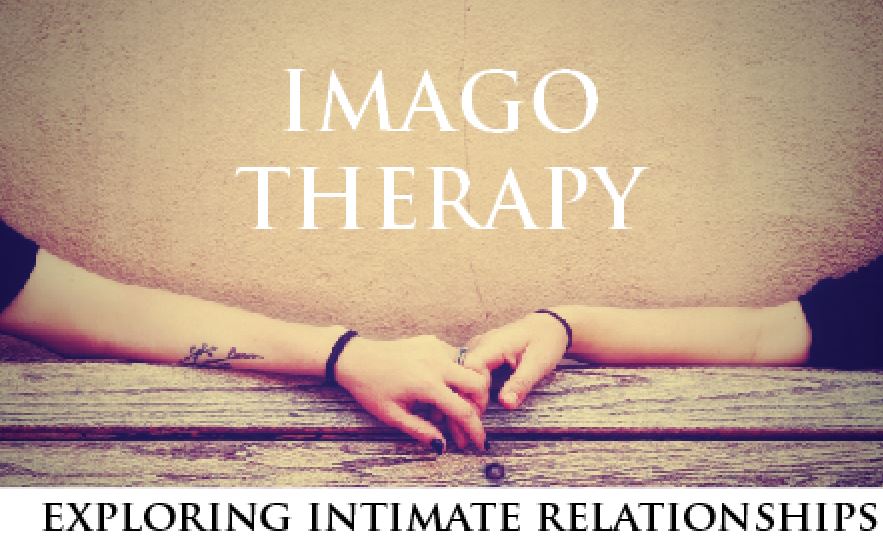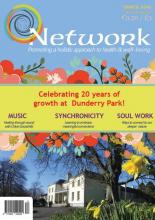Imago Therapy - exploring intimate relationships

So when you feel like hope is gone
Look inside you and be strong
And you’ll finally see the truth
That a hero lies in you.
Hero - Mariah Carey
Love is a kind of madness, Plato said. It seizes us, unbuttons us, flings us to the floor. In Love’s arms we surrender willingly, we submit whole-heartedly. We’re young again. We’re beautiful, adventurous, funny, and sexy. We swell with the sweet green sap of confidence and adolescent self-absorption. We are Heroes. Romantic Love intoxicates with the sweet elixir of youth. It’s no wonder in a culture that glorifies youth and idealises Romance that we search for True Love in the form of a soul mate, The One. ‘The Perfect Mate is Myth’, says Dr.Harville Hendricks who has devoted his life to uncovering the deeper purpose of relationships.
Harville’s hero’s journey began when he was a pastoral counsellor working with angry, disillusioned couples frozen in entrenched behaviours, grid-locked in despair. His own marriage was floundering and despite years of therapy and all the best intentions, he and his wife painfully divorced. ‘We just didn’t have the skills so vital to the survival of our relationship’ he writes in Keeping the Love you Find. It was out of the ashes of his own failed marriage, his own quest for The Perfect Mate, that Harville created the Imago Relationship Theory.
Imago is the Latin word for ‘image’. In modern psychology, the word has different nuances. Freud believed that love involved transference from our early childhood and family relationships, that our parents and our siblings influenced the way we love, and that when we fall into love with the ‘Perfect Mate’, we fall into the imagination. We evoke sepia-coloured images of an older love. Modern psychology echoes this belief. Scientific research now suggests that our nervous system is not self-contained. Thomas Lewis, Fari Amini and Richard Lannon write in A General Theory of Love that from earliest childhood, our brains actually link with those of the people close to us, in a silent rhythm that alters the very structure of our brains, establishes life-long emotional patterns, and makes us—in large part—who we are.
In Imago Relationship Therapy, Imago means a template of familiar love, the positive and the negative aspects of the love we experienced when we were very young. So the premise is that as adults we have an unconscious need to re-create familiar childhood experiences in an unconscious attempt to repair old wounds. ‘Without realizing it, we pick somebody who has the negative traits of our caretakers, because those traits feel familiar. We re-enact the dynamics of childhood by falling in love with people who will frustrate us terribly. It is as if our psyche is saying: I only want what I need from somebody who can’t give it to me’. The person we fall in love with, our soul mate, becomes our wound mate.
‘Incompatibility is grounds for marriage’ says Harville. It’s within the mystery of this paradox that we have the opportunity to grow up, to heal that part of ourselves that we have disowned or shut down and to co-create more conscious, healthier relationships. Harville’s second marriage to Helen LaKelly Hunt was very different. Yet, as they both discovered, Love rusts and becomes tarnished after years of neglect. For Harville and Helen, the acclaimed ‘marriage experts’ who had healed ruptures in so many relationships, divorce seemed the only way out of their pain. It was astrology that delivered the message they both needed. An astrology book picked up ‘by accident’ one afternoon delivered a message they were both ready to hear: criticism would destroy their relationship. So it was back to basics. ‘We decided to put ourselves through the exercises and techniques we’d created for others. We were able to re-create our previous intimacy, but on an even deeper, more profound level’.
There’s nothing glamourous about resurrecting love after years of neglect or the pollution of criticism and contempt. It takes great courage to reassemble those parts of yourself that you have hidden away for so many years, and great grace to repair a heart that has been broken. It’s a heroic quest to reclaim disowned feelings, to modify behaviours that wound, and to re-envision your own life and take back the projections so easily screened onto someone else’s life. Projections like: she has too many issues, or he cannot do emotions, or we’ve grown apart. Or the classic cop out: I’m not ‘in love’ with him anymore.
There’s nothing glamourous about starting over, fixing the cracks, and battling the urge to run. Yet, as Robert Frost wrote in his glorious poem ‘the best way out is always through’. As we clear away the thorny brambles that obstruct our path, our hands will bleed. We will become discouraged and thirst for something sweeter, cooler, and easier. Our impatience will be tested and yet when we stop looking for the epiphany, we will discover that with each new day, with each new awakening, and each stumble, we are moving a little closer. Our incompatibilities become our opportunities. Love’s labyrinth brings us to the final turn in the pathway where it is ourselves we meet bare-faced, soul naked without the artifice of appeasing smiles, without the heavy jacket of excuses we have worn for so many long years.
The Imago Narrative suggests that if your partner wants something from you that you might have disowned or shut down in childhood, they are helping you to identify a place where you can stretch and grow into that underdeveloped part of yourself. ‘If you give your partner the very things you feel you just can’t give, you end up getting a piece of yourself you never had before’.
Imago Therapy suggests 10 ‘truths’ to creating healthy relationships:
Incompatibility is grounds for marriage—the opportunity to create a great marriage.
Conflict is growth trying to happen—by stretching to give your partner what they need you grow new skills.
Being present for each other heals the past—we heal each other.
It’s not what you say, it’s how you say it— learn to really listen to one another.
Negativity is invisible abuse — energy follows attention. The more you focus on the good the more good there will be to focus upon.
Negativity is a wish in disguise — baby steps to change behaviours to empower you both.
Your brain has a mind of its own — you have the power to re-wire your brain, change your brain chemistry, as you rebuild your relationship.
Your marriage is a laughing matter— make the shift.
Your marriage is the best life insurance plan — be the change you wish to see!
Love is a choice. And we must choose again and again to make our relationship an incubator for our own spiritual growth and self-awareness. We can choose to fall in love with the same person over and over again, as our relationship cycles through the Life-death-rebirth spiral. Love is a paradox, a labyrinth where we may meet the Beast in the centre. And yet the pathologies of love are portals into a rich landscape where the soul can spread wings of splendorous colour. Where we can be heroes.
Ingrid Hoffman is an Astrologer and Imago Practitioner. She brings a lifelong interest in relationships and her own experience as wife, lover, friend, daughter and mother into her work. www.trueheartwork.com
Latest Issue
Upcoming Events
-
17/04/2020 to 26/04/2020
-
18/04/2020
-
23/04/2020
-
15/05/2020 to 23/05/2020
-
16/05/2020 to 17/05/2020
Recent Articles
Article Archive
- November 2011 (2)
- January 2012 (3)
- February 2012 (2)
- March 2012 (2)
- April 2012 (4)
- May 2012 (4)
- June 2012 (1)
- July 2012 (3)
- August 2012 (2)
- October 2012 (2)

